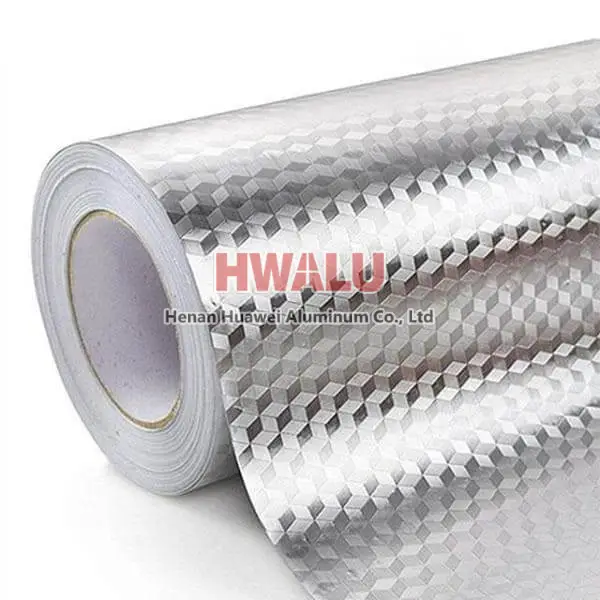What is aluminum foil for wrapping Aluminum foil for wrapping is a thin, flexible sheet of aluminum that is commonly used for wrapping food items or other objects for storage or transportation. It is made from a sheet of aluminum that has been rolled out to a desired thickness and then processed through a series of rollers to give it the desired strength and flexibility. Aluminum foil for wrapping is availabl ...
What is aluminum foil for induction Aluminum foil for induction is a special aluminium foil material with the function of electromagnetic induction heating. It is commonly used to seal the lids of bottles, jars or other containers for sterile, airtight packaging. In addition, aluminium foil for sensing also has the advantages of easy operation, high efficiency and environmental protection. The working princi ...
Pharmaceutical easy-tear aluminum strip foil Pharmaceutical easy-tear aluminum strip foil is a common pharmaceutical packaging material, usually used to package pharmaceuticals such as oral tablets and capsules. It has the advantages of easy tearing, good sealing, moisture resistance, and oxidation resistance, which can effectively protect the quality and safety of medicines. Pharmaceutical easy-tear aluminum ...
What is a large roll of aluminum foil Aluminum foil jumbo roll is a rolled product with aluminum foil as the main material, usually made of aluminium plate through multiple rolling and annealing processes. Aluminium foil jumbo rolls are usually sold in rolls, and the length and width of the rolls can be customized according to customer needs. Custom width aluminum foil jumbo roll What is the productio ...
What is Extra-heavy duty aluminum foil Extra-heavy duty aluminum foil is a type of aluminum foil that is thicker and more durable than standard or heavy-duty aluminum foil. It is designed to withstand higher temperatures and provide extra strength, making it suitable for more demanding applications in the kitchen and beyond. Extra-heavy duty aluminum foil common alloys The common alloy used for extra-heavy ...
The main factors affecting the heat sealing strength of aluminum foil medicine packaging are as follows: 1. Raw and auxiliary materials The original aluminum foil is the carrier of the adhesive layer, and its quality has a great influence on the heat seal strength of the product. In particular, oil stains on the surface of the original aluminum foil will weaken the adhesion between the adhesive and the orig ...
The performance differences between 3003 aluminum foil and aluminum plate are primarily related to its physical and mechanical properties and its intended application. Here are some of the main differences in performance: Formability: 3003 Aluminum Foil: 3003 aluminum foil is highly formable and can be bent, formed and folded easily. It is often used in applications that require flexibility and ease of mold ...
1050 aluminum foil is made of 99.5% pure aluminum. It has high corrosion resistance, excellent thermal and electrical conductivity, and good formability. It is a common type of 1000 series aluminum alloy. Aluminum foil 1050 is also known as 1xxx series pure aluminum alloy, which has a wide range of applications in various aspects. What are the common applications of 1050 aluminum foil? Aluminum foil 1050 is use ...
Degreasing pollution is mainly manifested on the surface of the aluminum foil in 0 state. After the aluminum foil is annealed, it is tested by the water brushing method, and it does not reach the level specified in the water brushing test. The aluminum foil that requires the water-washing test is mainly used for printing, composite with other materials, etc. Therefore, the surface of the aluminum foil must be ...
The selection principle of pass processing rate is as follows: (1) Under the premise that the equipment capacity allows the rolling oil to have good lubrication and cooling performance, and can obtain good surface quality and shape quality, the plasticity of the rolled metal should be fully utilized, and the large pass processing rate should be used as much as possible to improve the rolling mill Production ef ...
Aluminum foil factories will pay special attention to the following details when processing aluminum foil: Cleaning: Aluminum foil is very sensitive to impurities, any dust, oil or other contaminants will affect the quality and performance of the aluminum foil. Therefore, before processing aluminum foil, the production workshop, equipment and tools must be thoroughly cleaned to ensure that there is no contamin ...








